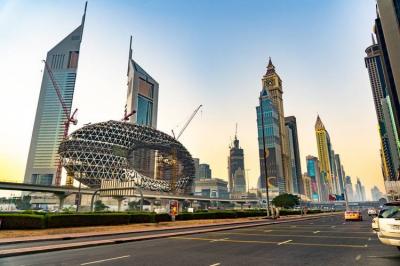Moody's credit rating agency has granted the Government of the United Arab Emirates a creditworthiness rating of "AA2" with a stable outlook for the national economy, marking the strongest sovereign rating of its kind in the region. According to an assessment released by the agency yesterday, Moody's stated that several factors support the rating, one of which is the weak impact of the COVID-19 pandemic on the government's financial strength, attributed to the effective government response in the battle against the global pandemic. The stable outlook reflects balanced risks, consistent with the stable outlook for the strong sovereign rating of the Emirate of Abu Dhabi.
One of the key points highlighted in the report is the country's global leadership and advancement in vaccination efforts, which the agency noted will support economic recovery, mitigating the pandemic's impacts on UAE credit metrics, according to the rating. The agency pointed out that the pace of recovery will vary across main sectors, with retail and tourism likely to recover faster than the passenger air transport sector.
Regarding local and foreign currencies, there has been no change, keeping them within the (Aaa) rating. The local currency's rating in the sovereign classification reflects the predictability of UAE institutions and the robustness of external accounts. Conversely, the ceiling on foreign currency highlights the very low risks associated with money transfers, due to substantial foreign currency reserves held by the central bank.
Like the rest of the world, the pandemic affected government revenues in 2020, resulting in a decline in VAT receipts due to a drop in tourist numbers and consumption. Nonetheless, according to Moody's, the decline was nearly fully compensated through reductions in government spending and social benefits spending, with the government’s fiscal deficit reaching only about 0.2% of GDP in 2020.
The agency positively highlighted the UAE's capacity to respond to shocks, exemplified by its struggle against the COVID-19 pandemic, where the central bank expedited the release of economic support through a stimulus package worth 100 billion dirhams, which later increased to 256 billion dirhams (equivalent to 20% of GDP). This included around 50 billion dirhams in interest-free financing facilities for banks to restructure loans for borrowers affected by the pandemic, as well as releasing liquidity reserves amounting to about 95 billion dirhams, among other measures.
Moody's pointed out that the UAE was among the first countries to introduce coronavirus vaccines and provide them for free to residents and citizens, achieving some of the highest vaccination rates globally.
Additionally, a separate survey conducted recently showed that business conditions in the UAE's non-oil private sector continued to improve in April, with new activity growth reaching its highest level in 20 months, as the economy recovers from the COVID-19 pandemic. The IHS Markit PMI for the UAE rose to 52.7 in April from 52.6 in March, marking the highest level since July 2019 and the fifth consecutive month exceeding the critical threshold separating growth from contraction. The retail and tourism sectors are expected to recover faster than the passenger air transport sector, showcasing the UAE's capacity to respond to shocks, as evidenced by its fight against COVID-19. The UAE was among the first countries to roll out coronavirus vaccines, achieving some of the highest vaccination rates globally.




